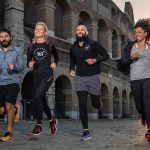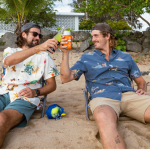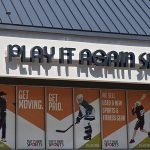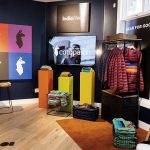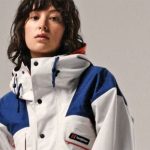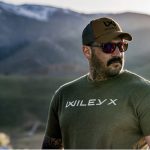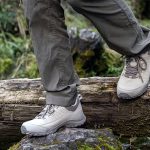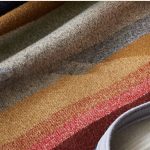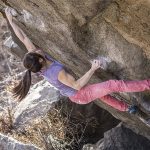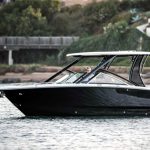The Federal Trade Commission has broadened an eight-month probe into potential restraint of trade by the football helmet manufacturing industry and the National Operating Committee on Standards for Athletic Equipment (NOCSAE), a non-profit organization that develops standards for their products, Sports Executive Weekly has learned.
NOCSAE, pronounced “NOXY” by industry insiders, is currently working with outside counsel to respond to a request for documentation received from the FTC in the last month, NOCSAE Executive Director and Legal Counsel Mike Oliver told Sports Executive Weekly Friday afternoon. Oliver said the agency asked for documents pertaining to NOCSAE’s certification process for third-party add-on products to football helmets as well as its ban on the use of certified test results in comparative product advertising.
“We are a little puzzled by the request because we dont understand how what we have done implicates the market or the FTC,” said Oliver. “Unless there is stuff going on behind my back, everything we have done has been about promoting standards that will protect the safety of the athlete. That’s all we care about.”
The FTC would not confirm the investigation, but others who said they have been contacted by the agency in the last month said the probe appears to focus at least in part on what role NOCSAE certifications play in determining what equipment football leagues, coaches, athletic directors and parents purchase. One industry source, who requested anonymity, characterized it as a restraint of trade investigation focused on whether NOCSAE and football helmet manufacturers have engaged in anti-competitive behavior.
NOCSAE is a non-profit, standards setting body governed by a board of directors comprised of representatives from the NCAA, National Federation of State High School Associations and trade associations representing sporting goods manufacturers, coaches and trainers. It has long held that any change or modification in the configuration of a helmet’s shell or liner material can affect its performance, possibly exposing the individual responsible for liability.
Under the NOCSAE model, equipment football helmet manufacturers and reconditioners that have proven they meet NOCSAE standards are allowed to use the NOCSAE seal on certified products in exchange for a licensing fee.
NOCSAE came under increased scrutiny in July 2013 when the Colorado State High School Activities Association banned third-party add-ons following an article in the Denver Post profiling how several high school teams had begun using the Guardian Cap. In its memo to athletic directors, the CSHHAA cited NOCSAE’s position that a helmet manufacturer has the right to void a helmet’s certification when it is used in conjunction with a third-party add-on product. All major football helmet manufacturers had already stipulated as much in their own warranties.
“We had 30 schools in the state of Colorado that all returned our product because the CSHHA ruled they cant use it,” said Matt Simonds, who heads up business development and national sales for Guardian Cap., which claims its soft helmet covers can reduce the impact of hits by up to 33 percent.
In Aug. 7, 2013, amid growing inquiries from coaches, parents and school boards about how third-party helmet add-on products affected helmet certification, NOCSAE released a statement explaining that its standards require such products be tested and certified separately for every model of helmet under the same standards helmet manufacturers must follow. Since there are five manufacturers making nearly 40 helmet models and NOCSAE requires that manufacturers test a statistically significant number of each make and model, Simonds estimates Guardian Cap would have to test its product on 40,000 helmets to meet NOCSAE standards.
“Since it costs $750-$1000/helmet, quick math can show you that this is not a feasible pathway,” Simonds said. “We have asked them to either modify the existing standard to allow us to be certified, or create a new standard for add-on products such as helmet covers, liners, sensors. All requests have been ignored or denied.”
Executives at Brain Sentry, which makes sensors that attach to helmets to alert officials, players and coaches to potentially concussive impacts, has had the same experience. The Brain Sentry is the official sensor of the Arena Football League and been used by Division 1 football powerhouses Louisiana State University and the University of Alabama as well as the North Georgia Youth Football Association and Gwinnet Football League in Georgia.
“Ive pursued that and there seems to be no practical way for a third-party add on company to certify their product,” said Brain Sentry Co-Founder and CEO Greg Merril. “It’s not about safety at all. It seems to be about something else, which may be what the FTC is looking into.”
Merril said Brain Sentry has continued to grow because parents, coaches and league officials think its products can help them better detect and manage concussions.
“Weve had significant success in people recognizing the benefits,” said Merril.
While a vocal critic of NOCSAE, Merril said he had not been contacted by the FTC since about eight months ago. Simonds said Guardian Cap was contacted by the agency for a second time in August.
NOCSAE is open to suggestions on how to improve the certification process for third-party add-on products, but not at the expense of safety, said Oliver. He said some companies are claiming they have a product they think will help reduce the risk of concussion, but that they dont want to be put to the expense of proving it.
“I care about whether it would jeopardize performance under our certificate,” he said. “Yes it’s expensive to do that, but every certified product out there has already gone through that expense once.”
In the meantime, he said he would continue to crack down on companies that cite NOCSAE test scores to back up claims their products offer more protection against concussions. NOCSAE, which has funded research into what causes concussions for decades, did not even approve a football helmet standard that requires helmets be tested for certain concussion causing forces until June.
The science behind concussion forces is still in its infancy, NOCSAE Vice President and Sports Legacy Institute Co-Founder Dr. Robert Cantu said at the time. There are so many different factors that can lead to a concussion, we dont foresee ever having a concussion-proof helmet.”
In its exhaustive October, 2013 report “Sports-Related Concussions in Youth,” the Institute of Medicine concluded there is still not enough fundamentally sound science for any manufacturer to claim their protective devices reduce the risk of concussion. The report concluded the best way to reduce the risk of concussions may lie in changing the way contact sports are coached.
Until such science emerges, NOCSAE advises parents remain very wary of any company that claims its product can reduce the risk of concussion.
“My biggest fear is that we are getting to a point where a consumer – whether they are a player, parent or coach – may get convinced by a great salesman that their child is protected so they are not worried about doing the hard thing which is changing behavior.”
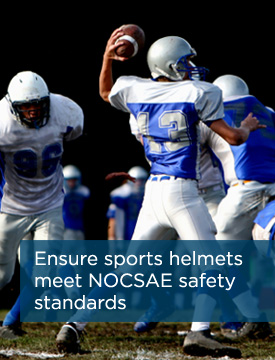 The Federal Trade Commission has broadened an eight-month probe into potential restraint of trade by the football helmet manufacturing industry and the National Operating Committee on Standards for Athletic Equipment (NOCSAE), a non-profit organization that develops standards for their products, Sports Executive Weekly has learned.
The Federal Trade Commission has broadened an eight-month probe into potential restraint of trade by the football helmet manufacturing industry and the National Operating Committee on Standards for Athletic Equipment (NOCSAE), a non-profit organization that develops standards for their products, Sports Executive Weekly has learned. 
